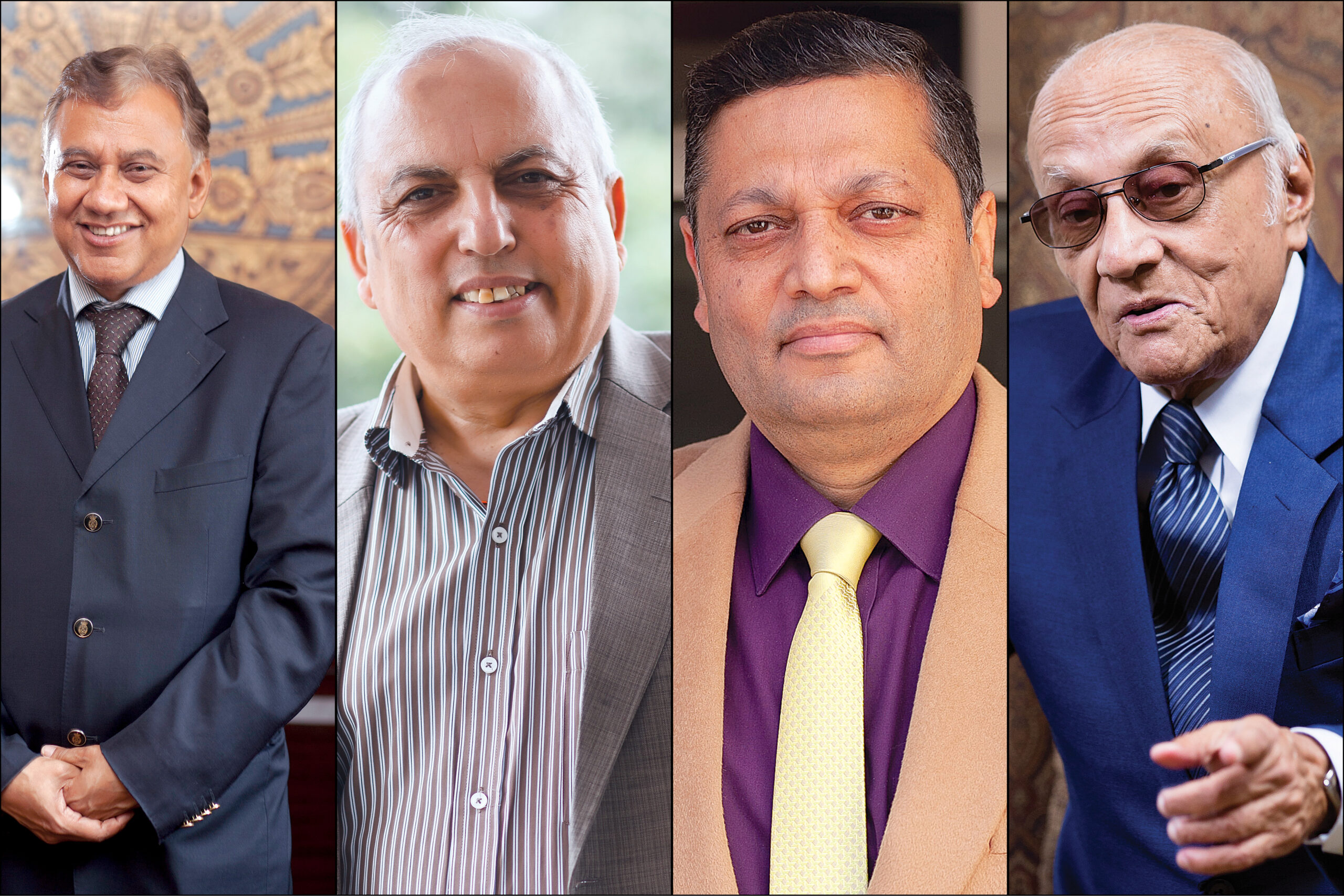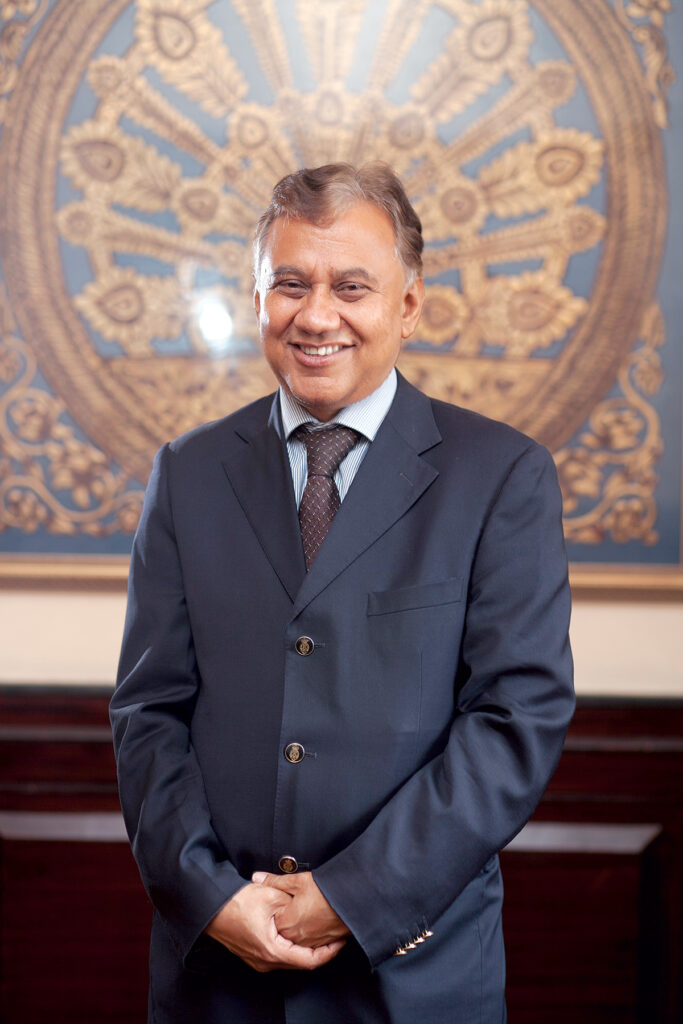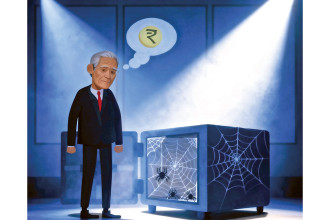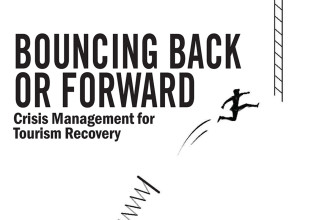
As the world struggles and works on recovering from the effects of an ongoing pandemic, economic diplomacy takes immense importance. Policies, strategy and negotiation become key words as countries – big and small - must cooperate to come out of the early stages of global recession brought on by the corona virus pandemic. While each country has had to find its own pace and formula for tackling the pandemic, rescuing of economies will require a more cohesive collective action with lowering of barriers to trade and investment being central to efforts.
How does Nepal fare caught between two economic giants on a quest for geopolitical and economic dominance. The government has earmarked a budget of Rs 140 million for its diplomatic posts to promote investment and aid. There are 39 Nepali missions abroad and India, China, US and UK alone receive Rs 60 million annually. While experts say this budget is negligent, the general public remains unaware of the efforts these missions make towards better economic cooperation or drawing investment into the country. Instead time and again, the public hears reports of ambassadorship on sale. Also in question is Nepal’s new foreign policy which has been deemed lacking strategic depth and clarity.
In this edition of Business 360 we invite experts on the topic to give us their view on how better can Nepal build its position between the Tiger and the Dragon to assimilate economic benefits, what are some of our drawbacks and post pandemic how essential are certain measures we must take today.




RUKMA RANA Former Ambassador of Nepal to India

How better can Nepal build its position between India and China to assimilate economic benefits?
The first step is to shift our focus and discussions from politics to economics. As long as we keep thinking and talking along the lines of the India or China card for myopic political gains, our economy can never maximise the opportunities we could garner from our strategic location. So instead of always saying what our big neighbours are doing against our interest, we have to start planning what we can do to build relations in areas of economic advantage for Nepal.What are the drawbacks of Nepal’s economic diplomacy with the two countries?
The main drawback is mindset. We need a paradigm shift in our mindset about how we define our relations with our neighbours. Now we have to make everything about economics, economics and then economics. We need to stop fearing we will b e taken advantage of and build confidence in our abilities to sit across a table and negotiate deals of mutual benefit on an institutional and national level.What could be our strengths and how can we leverage this?
Our location is our key strength. We are the bridge that connects the two biggest and fastest growing economies in the world. We need to explore ways in which we can leverage on our locational advantage for our economic growth. China has goods and services India wants and India has things China wants, the easiest way to move these goods and services no’s through Nepal.We are in the midst of a pandemic and economic recovery is ambiguous, yet what we do today will determine the future of the country post pandemic. What should our foreign and economic policies be focusing on?
My view on this may be slightly different than others, for I feel that if we are really serious about making economic development our nation’s core agenda, we need to all sit down and have a serious discussion on formulating an economic master plan for Nepal. A cross sectional short, medium and long term plan on how best to utilise our limited resources to maximise results. The political players, bureaucracy, public sector and private sector all need to come together to formulate a Nepal Economic Masterplan. The pandemic is not only a threat it’s also an opportunity for us to now start on a road to economic development.There is a huge shift in governments across the world; we remain in a political stalemate. How prepared is our bureaucracy to create pathways to better economic diplomacy?
We are always too quick to criticise. I have worked with our bureaucracy in several areas and I have found many very qualified and dedicated individuals across ministries. The problem is providing these individuals the recognition and environment in which they can excel. I end where I started if we want economic diplomacy to succeed then we have to make economics the central agenda of the nation. We need to elevate our economic agenda above our political agenda. Otherwise economic diplomacy as in the past will remain a venerated thought and nothing more.KRISHNA GYAWALI Former Secretary, GoN / Former National Coordinator – Office of the Millennium Challenge Nepal Expert - Political Economy and Governance

How better can Nepal build its position between India and China to assimilate economic benefits?
Nepal keeps the potential triggered by its need and circumstantial compulsion to leverage the economic benefits arising from its strategic location between the two economic giants. But the potential needs to be realised with the commensurate capabilities, attitude and commitment. This will be possible only when political leaders and bureaucrats come together to act in cohesion in partnership with the private sector and civil society. So far, the government has not been able to show its proactive engagement with the concerned stakeholders on promoting economic diplomacy in the new era of digital interconnectivity in keeping with the post-pandemic “new normal” in particular. The government-owned think-tanks such as Foreign Affairs Institute and Policy Research Institute should conduct appropriate research and recommend the government bureaucracy including Ministry of Finance and Ministry of Foreign Affairs to take a more radical, transformative approach in this direction.What are the drawbacks of Nepal’s economic diplomacy with the two countries?
Nepal does not have its appropriate industrial base to be able to export the finished products with value addition on a massive scale. It lacks robust physical infrastructure and conducive legal and institutional climate appealing to foreign investors. Political stability marred with inauspiciously interruptive change of governments betraying the people’s mandate has further worsened the situation. The institutional strength and robustness coupled with insufficient evidence-based knowledge and inept bureaucratic attitude have equally impeded the fast progress on economic diplomacy with the neighbours.What could be our strengths and how can we leverage this?
Couple of essentials need to be heeded to. First, Nepal’s tremendous untapped geo-natural and ethno-cultural resources. We can optimise on their usefulness as a source of strength to boost our economic interdependence with the neighbours. Second, friendliness of Nepali people’s behaviour. This can profoundly help us promote our hospitality business on competitive basis. And third, huge markets surrounding our borders. We have one of the highest competitive edges to sell our products provided we maintain quality and price.We are in the midst of a pandemic and economic recovery is ambiguous, yet what we do today will determine the future of the country post pandemic. What should our foreign and economic policies be focusing on?
Our foreign policy, foreign aid policy, foreign trade policy, foreign investment policy, foreign employment policy and tourism policy should all be geared toward tapping and leveraging the opportunities of post-pandemic world order. There has been a surge of new economic thinking revolving around green, climate-smart and resilient economic growth, socio-political equity, economically rewarding and all-inclusive political liberalism, and tolerant cultural inclusion. Nepal can keep close eyes on these developments and ready itself for the emerging challenges and opportunities specially on economic diplomacy front. Our policymakers should be educated and enlightened enough about these new possibilities.There is a huge shift in governments across the world; we remain in a political stalemate. How prepared is our bureaucracy to create pathways to better economic diplomacy?
Nepali bureaucracy has come a long way surpassing many turbulences and transitions and proven its resilience. What lacks, however, is persistent commitment and passion, a fire in the belly, to undertake reforms among them. Lip-servicing, complacency and cosmetic attitudes have been the main bottleneck. Economic ministries led by finance and sectoral line agencies (industry, commerce, tourism, labor, and foreign employment, etc.) should be more serious about championing the cause of Nepal’s economic diplomacy. Coordinating agencies like the National Planning Commission have a role of the connector, mediator, and facilitator. The Prime Minister’s Office should trouble-shoot the problems rather than control the line ministries. And finally, the Ministry of Foreign Affairs should play the pivotal role in designing and implementing economic diplomacy policies that suit Nepal’s national interests.PROF. GOVIND NEPAL (PhD) Member, Board of Directors - Institute for Strategic and Socio-Economic Research (ISSR) / Professor of Economics, Tribhuvan University

How better can Nepal build its position between India and China to assimilate economic benefits?
Nepal has enormous potentiality to take advantage of its geographical position and age-old relation with the two giants fast developing Asian Countries. The apparent advantage is the big market for domestic products. If Nepal is cost competitive or comes with unique products, the market is at the door step. Second, Nepal can benefit from the foreign direct investment that brings capital, technology and managerial skills together. They are increasing interest of both Indian and Chinese foreign investors in doing projects in Nepal. Efforts have been made by the Government to attract new investment by amending foreign investment related acts and regulation. The third opportunity is the possibility of Nepal to pe a part of production chain and get benefits. Despite all these prospects, Nepal's achievement is less than satisfactory.What are the drawbacks of Nepal’s economic diplomacy with the two countries?
Conduct economic diplomacy is one of the tasks mentioned under the list of terms of reference of the Nepali diplomat. However, Nepal's economic diplomacy has not been much effective as the efforts to expand economic relationships is not persistent. We talk much during the time of bilateral visits but constant follow-up or persuasion is lacking through Nepal's diplomatic mission in New Delhi and Beijing. The embassies are busy with their core business and economic diplomacy is in shadow. Further, the Foreign Ministry of Nepal faces some problem that may have some implication on running economic diplomacy aggressively. For instance, while nominating the Ambassador and the senior staff of embassy, the Government of Nepal does not fully assess the kind of expertise the embassy needs. There is no adequate co-ordination between the Finance Ministry and Foreign Ministry of Nepal. The budget allocated to the embassies is limited and insufficient to organise programs and lobbying. Sometimes, government agencies of Nepal deal directly with their counter parts in India and China without using proper channel of Nepali embassies. This practice is eroding the image of embassies of Nepal in the eyes of the countries where they are represented. Political stability, peace, security as well as law and order are preconditions for fostering economic relations.What could be our strengths and how can we leverage this?
We have to look on the apparent potentials and plan efficiently and persistently to harness it. We are rightly focusing on natural advantage and economic advantage. Tourism and hydropower development, medical education, newly identified mining-based industries, high value crops are potential areas. Electricity can be traded with India, Bangladesh and even Tibetan part of China. Religious and nature-based tourism are attractions to both Indian and Chinese people. Infrastructure development, enhancement of cross border mobility, and strengthening people to people relation are sustainable manifestation of economic diplomacy. The land linked Nepal should not remain underdeveloped between China and India.We are in the midst of a pandemic and economic recovery is ambiguous, yet what we do today will determine the future of the country post pandemic. What should our foreign and economic policies be focusing on?
The pandemic has incurred a huge loss to Nepal. Tourism, construction, small and medium industries, and education sectors are the main victims. Various national and international studies have estimated GDP growth rate for the FY 2019/2020 as low as less than one percent. The hotels and hospitality industries opened to cater the services for Visit Nepal 2020 suffered heavy setback. During the initial months of pandemic, countries of the world were guided by self-interest which affected the supply of essential goods. Though Nepal did not face such problems, we have learned lesson that at least Nepal should be self-reliant in food items, energy services and medicines and medical services. We also felt that we need support from our neighbours in our endeavour to address pandemic. Amidst acute shortages for their own people, the donation of vaccine that we received from India and China is a gesture of goodwill of our neighbouring countries. For a nation like us, good foreign policy is inevitable for security and development. Our economic diplomacy should be guided by our economic interest. We do not have any ambition other than prosperous Nepal and happy Nepali. Nepal needs more diplomatic skills and competencies to safeguard the national interest when regional and international power are coming with aggressive strategic missions under different names. Even nonaligned countries are indirectly pressurised to choose one side. Under such circumstances, Nepal should clarify their position telling why they need to remain non-aligned and how its nonaligned status does put any threat to their strategic interest. Economically poor nations suffer more from pandemics. They cannot manage resources for rescue and relief, and post disaster recovery. Therefore, Nepal's economic policy should encourage transformative projects; projects that attract other projects and projects that ensure benefits in a sustained manner.There is a huge shift in governments across the world; we remain in a political stalemate. How prepared is our bureaucracy to create pathways to better economic diplomacy?
Nepali bureaucracy is well educated, competent but not proactive. Political intervention in conducting bureaucracy made it less enthusiastic, and frequent transfers to different ministries made it less professional. Though such common tendency is relatively less in the Foreign Ministry, but their inter-ministerial coordination is weak. Economic diplomacy requires Foreign Ministry to have good coodination with all major economic sectors that are related to foreign trade, aid and investment. Finance ministry with National Planning Commission should prepare a recovery plan and identify areas where economic diplomacy should be used as important instrument. Ministry of Finance should effectively meditate between the Foreign Ministry and the other ministries. The national recovery plan should be a product for the Foreign Ministry to sale. The previously agreed but not implemented yet development agenda should also get priority.DR NISCHAL NATH PANDEY Director, Centre for South Asian Studies

How better can Nepal build its position between India and China to assimilate economic benefits?
Economic diplomacy is not a new construct. It has been in vogue for centuries. Nepal invaded Tibet in 1788 over a trade dispute caused by low-quality coins manufactured by Nepal that the Tibetans were complaining about. Therefore, we can see that economic issues would lead to conflict and wars even two centuries ago. With the ebb and flow of time; trade, issues of transit, investment, technology, tourism have now become part and parcel of international relations exercise. Every government has to give due priority to these issues otherwise foreign relations by itself becomes hollow. Getting it right can get rich dividends for the nation. Getting it wrong can be costly.What are the drawbacks of Nepal’s economic diplomacy with the two countries?
Nepal has a rich diplomatic history. We established diplomatic relations with the UK and US even before we did with our own two neighbours. This is a peculiar diplomatic history that we need to be aware of. But the traditional approach has to change. Effective, multi-prong approach has to be adopted by Nepal in order to manage ourselves in the international domain in the post Covid era. International assistance is going to shrink, there will be less demand for labour in the Gulf countries, tourism will not see a rebound in its original figure perhaps till 2022. This is the time to re-think diplomacy. We have established embassies in countries such as South Africa, Spain, Canada, Denmark with whom we have little contact and commercial interchange. Some countries like Singapore have non-residential ambassadors who go to specific capitals only when work demands. Therefore, the cost to open and maintain embassies is greatly reduced. We need to be open to new ideas and approaches to diplomacy.What could be our strengths and how can we leverage this?
There is also a dire need for coordinated effort across ministries on certain crucial issues facing the country. An example is Nepalese airlines banned from EU skies. This has impacted our international image as a safe tourist destination. Nepal Airlines despite possessing Airbus 330 could not go and rescue Nepalese citizens stranded in EU and US during the pandemic. Only sending technical team from the Department of Civil Aviation to Brussels once a year is not enough, there has to be a synchronised attempt at assuaging the concerns put forth by the European Aviation Agency. Why has there been no change in our air safety status for seven years? This issue needs serious handling at the level of the Prime Minister with all line ministries involved and aggressive lobbying done by all our missions in the EU, not just in Brussels. Same goes with the issue of tourism marketing, investment promotion, partner searches. In a rapidly changing international situation, Nepal has to carve out a niche’ for ourselves.We are in the midst of a pandemic and economic recovery is ambiguous, yet what we do today will determine the future of the country post pandemic. What should our foreign and economic policies be focusing on?
Earthquake of 2015 and the Covid 19 pandemic were ‘unfortunate’ for Nepal but the current political stalemate leading to street demonstrations and strikes is purely ‘man made’. This is not unfortunate rather it is stupid because at a time when we are reeling under so many challenges and problems at multiple fronts, we cannot afford another season of political unrest in our country. What is particularly sad is that our democratic institutions have not evolved. They have been rammed by appointments of ‘near and dear ones’ of those in the highest echelons of power. Therefore, all vital institutions have been grossly politicised to such an extent that they function like sister organisations of political parties in power.There is a huge shift in governments across the world; we remain in a political stalemate. How prepared is our bureaucracy to create pathways to better economic diplomacy?
Young bureaucrats of Bhutan are sent at government expense to Harvard and Stanford to further their studies. Our state does not invest on improving the quality of bureaucracy. However, today our civil service, army and police is inclusive, proficient and much well versed on the affairs of the state even more than the political leaders. They need to gather guts to speak up to the ministers and give proper advice rather than consent to any decision that is being made.
Published Date: February 22, 2021, 12:00 am
Post Comment
E-Magazine
RELATED Opinion





